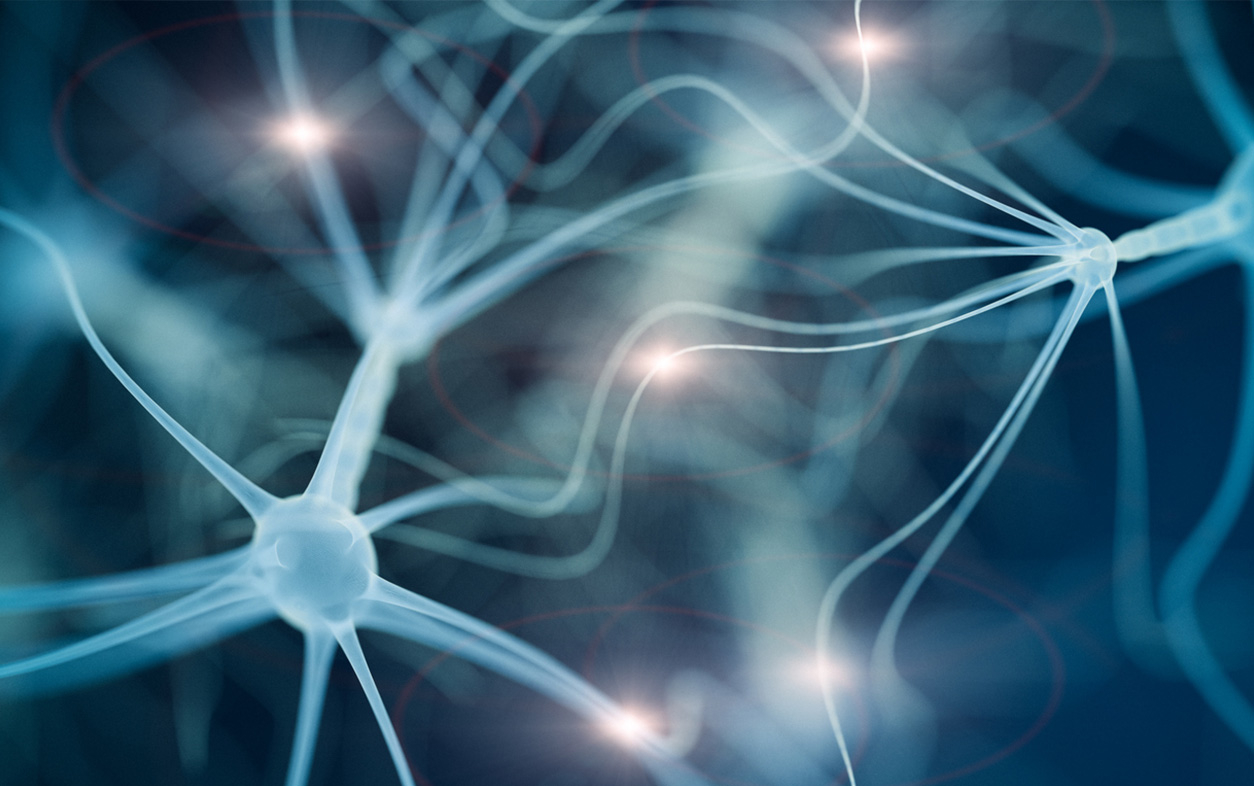Your nervous system runs throughout your body and is key to a number of essential functions. From regulating your breathing to sensing heat, this network of senses sends signals to support your existence. As a result, nerve damage (or peripheral neuropathy), if untreated, can leave sufferers with a much lower quality of life.
Over 20 million people in the United States are estimated to have some form of nerve damage, although the figure is thought to be much higher due to a large number of sufferers having not yet been tested for the disorder. What is more, not all forms of neuropathy are considered when these sufferers visit their doctor.
To shed some light on nerve damage, we dispel some of the myths surrounding it here, as well as explain the causes, symptoms and treatments.

What is nerve damage?
Nerve damage is a general term encompassing over 100 forms of peripheral neuropathy. Essentially, it is caused when the signals within the nervous system are disrupted. This could mean that the signals are not being sent at all, they are being sent when they should not be, or the signals are distorted. Either way, the symptoms of this disruption can range from mild to disabling for those afflicted.
The specifics of the condition depend on which of the three types of nerves are affected. These are automatic, motor and sensory:
Automatic – These are the nerves that control the involuntary or partially voluntary responses of your body, such as heart rate, blood pressure, digestion and temperature regulation.
Motor – These are the nerves that regulate the movements and actions caused by passing information from your brain and spinal cord to your muscles, like walking, talking and moving your fingers.
Sensory – These are the collection of nerves that transmit information relating to your senses to your brain. Examples of sensory reactions include the feeling of temperature on your body and the pain from physical harm.
The affected nerve endings are typically the ones furthest away from the center of your body. It is for that reason that symptoms will generally develop initially, or become much worse, in your feet.
What are the symptoms of nerve damage?
This depends on the nerves that are affected. With automatic nerve damage, the most common symptoms include excessive sweating, heat intolerance and an inability to expand and contract the small blood vessels which regulate blood pressure. There are also examples of patients struggling to swallow due to the nature of their condition.
Likewise, motor nerve damage affects the control that sufferers have over their own body. This manifests itself through uncontrollable twitching, muscle shrinking and even painful cramps in various parts of the body.
Sensory nerve damage, on the other hand, is arguably the most debilitating as it concerns the broadest range of human functions. In some cases, disruption to your sensory nerves means that you lose the ability to feel vibrations or even touch your hands and feet, as if you are wearing gloves. In other cases, your balance may be affected, preventing you from walking quickly or fastening buttons on a shirt.
Perhaps more concerning is that sensory nerve damage can cause your pain receptors to fire when there is no cause for pain. It is in these circumstances where those affected may struggle to maintain their quality of life, especially if they remain undiagnosed.

What causes nerve damage?
The majority of sufferers acquire the disorder later in life as opposed to being born with it. As a result, there are four common causes. They are:
Physical trauma – A car crash or sports injury, for example, can compress nerves or detach them from the spinal cord. Even small-scale damage can result in underlying medical conditions that prevent the nerves from fully functioning.
Diabetes – Up to 70% of diabetes sufferers have some form of nerve damage. It is the leading cause of the condition in the US, and can result in symptoms such as numbness, tingling and unwarranted pain.
Vascular blood problems – Anything that impedes blood flow can cause patchy nerve damage that isolates certain signals in your body. This is caused by the likes of diabetes or smoking.
Autoimmune diseases – These diseases cause the immune system to attack a number of the body’s own tissues and can directly target nerves. This causes the nerves to compress or become trapped.
While these are not all the causes of nerve damage, they highlight how a large percentage of the population can develop the disorder without realizing.
How can nerve damage be treated?
The condition is rarely cured, but there are a number of treatments that can soothe the symptoms of nerve damage considerably. Unlike other sources of pain, neuropathic pain is not usually eased with common painkillers like Tylenol or Advil. Instead, your doctor may try a variety of medicines primarily known for treating other conditions. These include:
- Amitriptyline – Used for the treatment of headaches and depression
- Duloxetine – Used for the treatment of bladder problems and depression
- Pregabalin and gabapentin – Used for the treatment of epilepsy, headaches and anxiety
Do not be alarmed by the fact that these medicines are also used in the treatment of depression. This is not because your doctor suspects that you are depressed, more that they have shown to be effective in relieving symptoms like yours. Outside of this they may also prescribe you tramadol, which is a powerful opioid. This drug can treat neuropathic pain when it does not respond to the above treatments.
Finally, you may be prescribed capsaicin cream. Capsaicin is the chemical component that makes chili peppers hot and is believed to treat neuropathic pain by preventing the nerves from sending pain messages to the brain. By rubbing a small amount of capsaicin cream on the painful area of your skin three or four times a day, you may be able to reduce the level of neuropathic pain you experience.
How you can look after yourself further
At Medix, we have many of the medications featured above in stock and available for delivery. We also have guides on how to treat the underlying conditions which may be aggravating your nerve damage. Diabetes: An Overview Of Causes And Methods Of Prevention, for example, can be treated to the extent that its symptoms are minimal. As a result, you can limit the damage it inflicts upon your nerves.
If you have any questions about how our service or the products that we stock can treat your conditions, please get in touch. You can call a member of our customer service team on 1-866-500-6633 (toll-free phone number). Otherwise, please request a callback.






